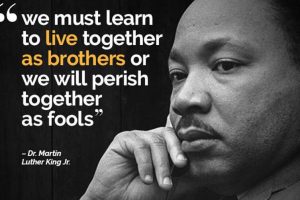 About 20 years ago, I worked as the Chief of Staff for San Jose City Councilmember Forrest Williams. I learned so much from him during the time I worked for him, but one thing he taught me wasn’t from his work as an elected official, from his PhD and Masters Degree in Engineering, or his 30-plus years of work as an engineer for IBM. It was living life as a black man in America, and the lessons he had to teach his son.
About 20 years ago, I worked as the Chief of Staff for San Jose City Councilmember Forrest Williams. I learned so much from him during the time I worked for him, but one thing he taught me wasn’t from his work as an elected official, from his PhD and Masters Degree in Engineering, or his 30-plus years of work as an engineer for IBM. It was living life as a black man in America, and the lessons he had to teach his son.
As always, his most impactful lessons to me started as a casual conversation (as they always did in his office). It wasn’t a lecture and it didn’t stem from a certain instance, but when I asked him about his newest grandchild, a son, born to his son, whose pictures adorned his office.
After sharing the latest adorable updates, Forrest shared with me the conversations he hoped that his son wouldn’t have to have with his son, but probably would, about being a black male in the United States. About being careful of his actions and his perceived actions, and being more careful about the company that he kept. Having been raised in the same part of San Jose where Forrest raised his family, I was struck by the fact that my parents never had to have this conversation with my brother, and I would never have to have this conversation with my future sons.
It is then that I understood, as a blonde haired, blued eyed white woman, how deep my privilege truly was. I realized that even though I had friends of every color and who spoke many languages, and even though I am a truly empathetic person by nature, I would never know what it is like to live in the skin of someone who is not white. And with this acknowledgment came great responsibility. A responsibility to stand together with my brothers and sisters of all colors. To understand them. And to work toward peace and justice.
It also meant that I had–and continue to have–a responsibility not to just be not racist in my words and actions, but to work against racism. Being a blonde haired, blue eyed white woman, I have been on the receiving end of “wink, wink” sotto voce racist remarks made by other white people who think I align with their thinking. I have been on the receiving end of conversations that talk about white supremacy. And I have used my voice to speak out against this, even in the midst of responses like, “Oh, it’s just a joke” and “You can’t think I’m being serious.”
Racism is serious. Jokes are serious. Huge fires come from small sparks, and if we don’t extinguish the small sparks of racism in our own homes, friendship groups and communities, then they will become big fires. Similarly, we can use our privilege to start positive sparks of understanding, peace and unity in our own communities, so that we stoke bigger and more positive flames in the future.
I constantly use Forrest’s lessons and the lessons I’ve learned from every one of my clients serving students of all colors to inform my work: that communication isn’t about just writing up messaging and sending it out, but that it’s a purposeful and vital bridge to build equity and bridge parents (many of whom felt marginalized while in school) to the positive benefits of schools–and the people who work in them–for their children, and to build mutual understanding and support.
I had the opportunity to attend Sacramento’s MLK Celebration in January, where Ruby Bridges spoke about her experiences as the first black child attending into a newly desegregated school in New Orleans, and then as a mother of a son who was brutally murdered. Her outlook in life has been full of grace and forgiveness, and here are a couple of my biggest takeaways from her (in her words):
-We have to unite if we are doing good
-We each have to do something good so we can unite and do something good together
So, use today, this week, and your lifetime to unite together to do something good with others. While recent events have heightened our awareness of the problems our country faces with racism, the fact remains that this has been a historical and current problem that will continue if we are not each individually proactive. I started a Facebook group, Peace. Unity. Understanding. to provide a forum where we can increase awareness and understanding through the sharing of information and resources that will help educate and challenge our own personal beliefs and others’, as well as doing good through unity by sharing ways we can support causes that improve social justice and resources for marginalized populations. Lastly, we can also use this forum to share opportunities to peacefully engage online or on the ground to support unity. Join the group, contribute to the conversation, and fan the flames of peace, unity and understanding.

Leave a Reply